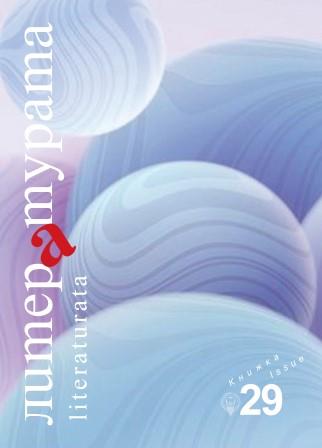Купчина боклук, склад, енциклопедия: метафори за постюгославската културна памет. Да пушиш и рисуваш върху кибритени кутии
Garbage Heap, Storehouse, Encyclopedia: Metaphors for a Post-Yugoslav Cultural Memory. Smoking, and Drawing on Little Boxes
Author(s): Guido SnelSubject(s): Language and Literature Studies, Applied Linguistics, Studies of Literature, Serbian Literature, Philology, Theory of Literature, Sociology of Literature
Published by: Софийски университет »Св. Климент Охридски«
Keywords: exile; post-Yugoslav; war; chaos; trope; suitcase; photo album; encyclopedic list; forgetting; memory
Summary/Abstract: Guido Snels examines the concept of post-Yugoslav common literary culture. He scrutinizes a sense of a literary community within its space and tries to limit this sense to the narrower, common concern of exile and (literary) homelessness. His accent is on the novel of exile “The Museum of Unconditional Surrender” by Dubravka Ugrešić. He states that in a structural sense, the novel hovers between two metaphors for ordering: the garbage heap and the encyclopedic list – key tropes that reverberate the chaos after the catastrophe of Yugoslav wars in 90-s. Ugrešić’s catalogue of exiled authors offers a list of those who are excluded by their national communities, some of whom would be otherwise condemned to oblivion for want of an alternative community. This explains the abundant use of intertextuality in this novel aiming at creation of a cultural memory by quoting the cultural annihilation brought about by the culture of nationalism. Snels gives proofs that the series of recurring images and tropes that structure the novel (suitcases, photo albums, encyclopedic lists) are in themselves also quotations and should be read as such. By borrowing devices from its self-appointed predecessors, the novel points out a literary and artistic tradition that, much as Ugrešić’s own work, shows an obsession for literary form as a means to counter forgetting. The author also points out the main shift in Ugrešić’s poetics away from her Yugoslav literary ancestors, toward literary form as a means to cope with ongoing forgetting, literary form as a means to perpetuate mourning or grief as a result of irreconcilable loss.
Journal: Литературата
- Issue Year: XVI/2022
- Issue No: 29
- Page Range: 45-69
- Page Count: 25
- Language: Bulgarian
- Content File-PDF

